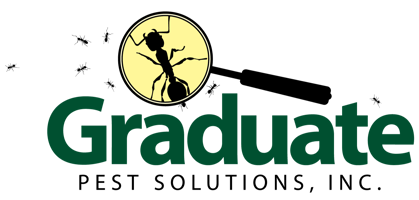We’ve recently covered how to tell the difference between termite swarmers and flying ants, as well as how to prevent the former. But how do you control ants in your home and keep them out altogether? We’ve got DIY tips that will help keep your home ant-free.
Prevent access in the first place
One of the most common ways pests enter your home is through the foundation. As time passes, concrete foundations crack and move because of shifting earth and erosion. These cracks can be nearly imperceptible to the human eye but can be large enough for an ant to make its way through. The simplest fix for this is to regularly inspect your foundation and caulk any newly formed cracks. This also has the added benefit of reducing the amount of moisture that can get into your home. Many pests, ants included, seek moist, warm areas for feeding and setting up colonies.
Pet food? Pest food.
Our furry friends typically eat on the floor and other easily accessible areas of our homes. Kibble and canned pet food are fine sources of food for pests, especially ants. This isn’t so much of an issue if your pets have a set feeding time but can be troublesome if you usually leave your pet’s food out all day. Be sure to clean the area near where pets eat as well to ensure loose food bits aren’t left behind.
Clean up leftovers
If ants are drawn to pet food, it should be no surprise they also enjoy human leftovers. Following meals, be sure to pick up all food debris and wipe down surfaces. This goes for liquids too, like sugary drinks and soda. Sticky, sweet liquids are very attractive to ants! If you have children, especially young children, wipe down high chairs and booster seats that can hide food bits.
Store your food in airtight containers. Things like rice, oats, and cereal that come in cardboard boxes or tubes should be switched over to Tupperware for long-term storage. Keep fruits and vegetables in the fridge whenever possible. Places like the toaster and microwave can hide crumbs and spilled food under and behind them.
Avoid over-the-counter methods to control ants
There are some store-bought treatments and tools that can help with ant infestations in your home but can be harmful to pets and children (and you). Even more so, they can be largely ineffective as we have covered in the past. OTC treatments are reactionary and the most effective measures are preventative.
Download Our Guide to Ants in Your HomeOur team at Graduate Pest Solutions specializes in prevention. Call us at 413-566-8222 or contact us with any questions or if you are experiencing a pest problem. We have the knowledge and service necessary to help keep your home and workplace pest-free!
YOU MAY ALSO LIKE
These related articles

